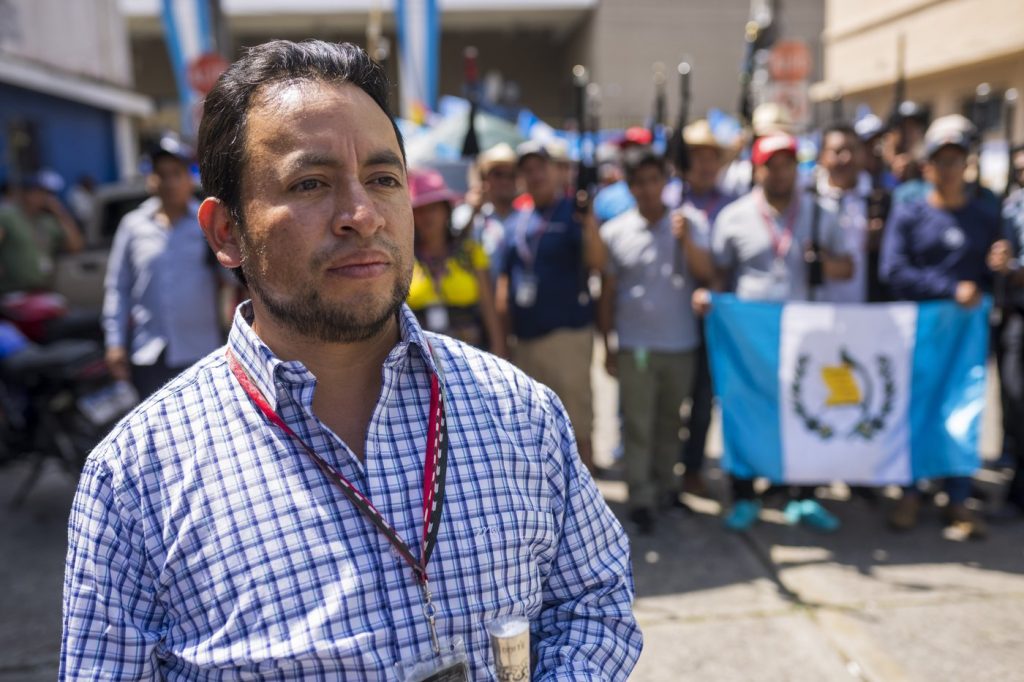GUATEMALA CITY (AP) On Wednesday, Guatemalan authorities arrested an Indigenous leader, Luis Pacheco, who played a significant role in the nationwide protests of 2023. These protests aimed to support the transition of then-President-elect Bernardo Arévalo while calling for the resignation of the Attorney General, Consuelo Porras. Pacheco, who is a deputy minister in Arévalo's administration, has been accused by the Attorney General’s Office of terrorism and illicit association.
Pacheco emerged as a prominent figure leading an alliance of 48 Indigenous communities during October 2023 protests, which resulted in the shutdown of highways across Guatemala for three weeks. The demonstrations were a response to concerns over the electoral process and the subsequent actions of the Attorney General's Office, which continued to investigate the election results despite Arévalo's significant victory in August 2023. This office had accused members of Arévalo's party of improperly collecting signatures to form the party.
Throughout the protests, Pacheco asserted that the community's pivotal moment was marked by a controversial raid on electoral offices, during which federal agents confiscated boxes of precinct vote tally sheets despite pushback from electoral officials. Pacheco emphasized that the will of the people should be honored, stating, “The people already voted, and you have to respect the decision taken.”
Following the completion of the elections and Arévalo’s subsequent rise to power, Pacheco was appointed deputy minister for sustainable development in the Energy and Mines Ministry. Notably, Porras has faced intense scrutiny and criticism for her refusal to resign or to cease investigations targeting Arévalo's party. The U.S. government has also sanctioned her for allegedly hindering corruption investigations in Guatemala.
In light of the arrest, President Arévalo described the charges against Pacheco as unfounded and "spurious," asserting that they criminalize the principles and rights that Guatemalans are guaranteed. The legal team representing Pacheco, led by attorney Francisco Vivar, reported that federal agents denied them access to the location where Pacheco was arrested, and they had not seen him since the apprehension.
Pacheco, a member of the K’iché Indigenous group, has been a vocal advocate for Indigenous rights and democratic processes in Guatemala. His arrest signals ongoing tensions between the new administration and the existing judicial establishment, reflecting deeper issues regarding the rule of law and the protection of democratic institutions in the country.
This incident comes amid a backdrop of significant political turmoil in Guatemala, where the conflict between elected officials and the Attorney General's Office has raised concerns over democracy and governance. The arrest not only affects Pacheco and his community but also highlights the broader implications for Indigenous movements seeking representation and justice in the political landscape of Guatemala.
As the situation continues to develop, observers are closely watching the reactions from both the Guatemalan public and international stakeholders, particularly regarding the implications for democracy and human rights in the region.
For more coverage on this issue and other developments in Latin America and the Caribbean, please visit the associated news platforms.











